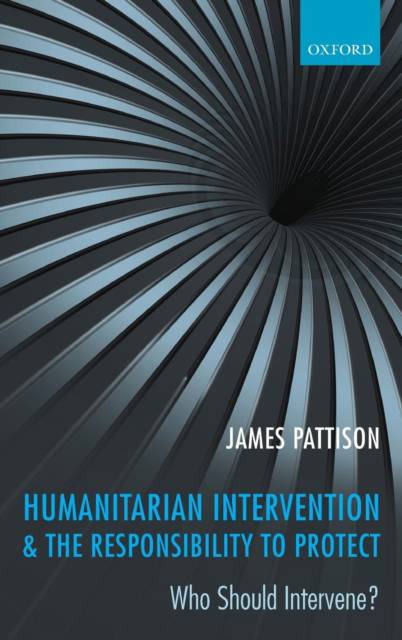
- Retrait gratuit dans votre magasin Club
- 7.000.000 titres dans notre catalogue
- Payer en toute sécurité
- Toujours un magasin près de chez vous
- Retrait gratuit dans votre magasin Club
- 7.000.000 titres dans notre catalogue
- Payer en toute sécurité
- Toujours un magasin près de chez vous
Humanitarian Intervention and the Responsibility to Protect
Who Should Intervene?
James Pattison
Livre relié | Anglais
155,45 €
+ 310 points
Description
This book considers who should undertake humanitarian intervention in response to an ongoing or impending humanitarian crisis, such as found in Rwanda in early 1994, Kosovo in 1999, and Darfur more recently. The doctrine of the responsibility to protect asserts that when a state is failing to uphold its citizens' human rights, the international community has a responsibility to protect these citizens, including by undertaking humanitarian intervention. It is unclear, however, which particular agent should be tasked with this responsibility. Should we prefer intervention by the UN, NATO, a regional or subregional organization (such as the African Union), a state, a group of states, or someone else? Humanitarian Intervention and the Responsibility To Protect answers this question by, first, determining which qualities of interveners are morally significant and, second, assessing the relative importance of these qualities. For instance, is it important that an intervener have a humanitarian motive? Should an intervener be welcomed by those it is trying to save? How important is it that an intervener will be effective and what does this mean in practice? James Pattison then considers the more empirical question of whether (and to what extent) the current interveners actually possess these qualities, and therefore should intervene. For instance, how effective can we expect UN action to be in the future? Is NATO likely to use humanitarian means? Overall, it develops a particular normative conception of legitimacy for humanitarian intervention. It uses this conception of legitimacy to assess not only current interveners, but also the desirability of potential reforms to the mechanisms and agents of humanitarian intervention.
Spécifications
Parties prenantes
- Auteur(s) :
- Editeur:
Contenu
- Nombre de pages :
- 296
- Langue:
- Anglais
Caractéristiques
- EAN:
- 9780199561049
- Date de parution :
- 19-04-10
- Format:
- Livre relié
- Format numérique:
- Genaaid
- Dimensions :
- 155 mm x 234 mm
- Poids :
- 616 g







